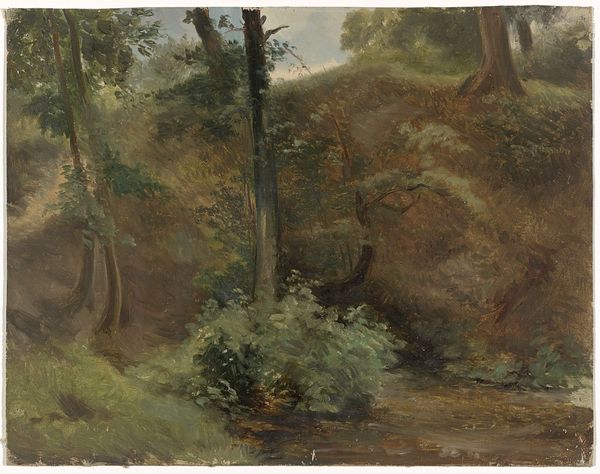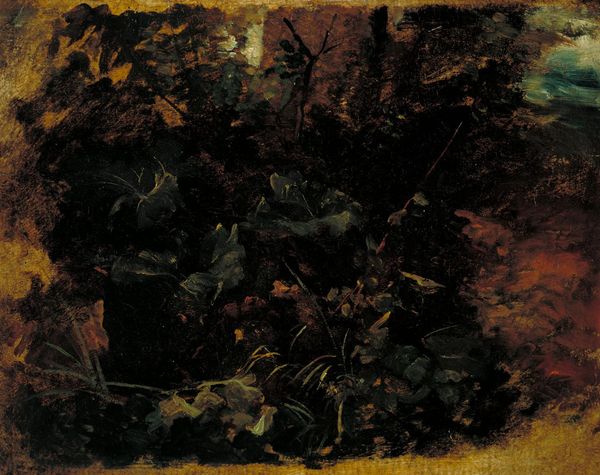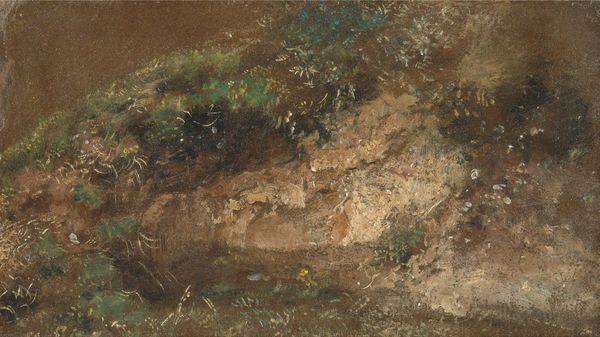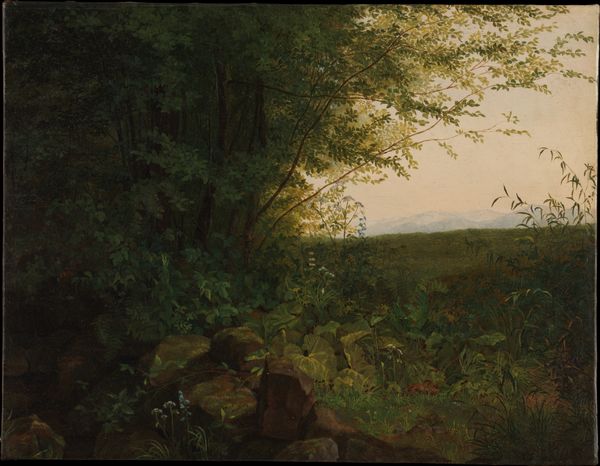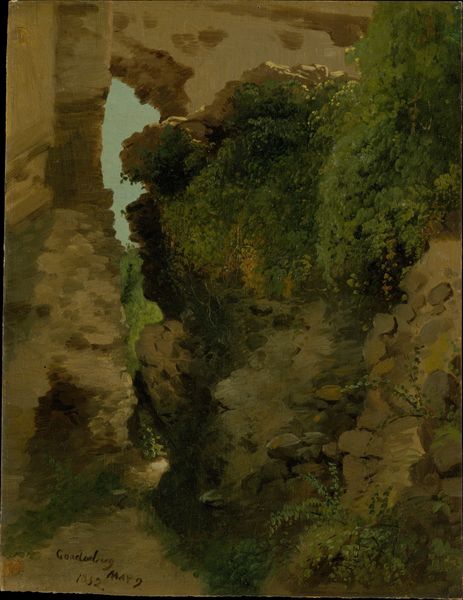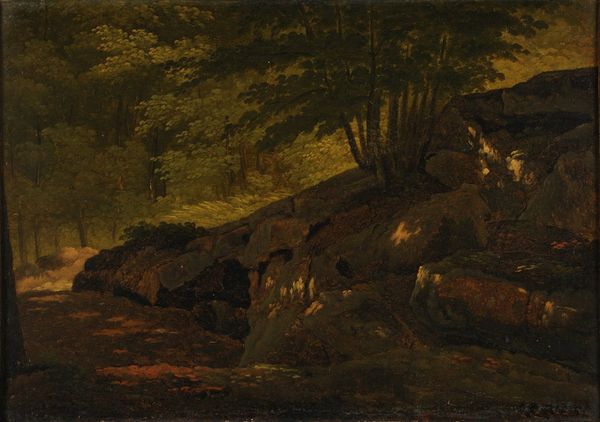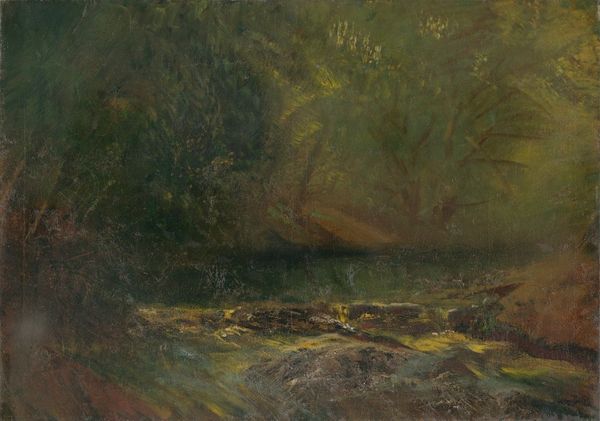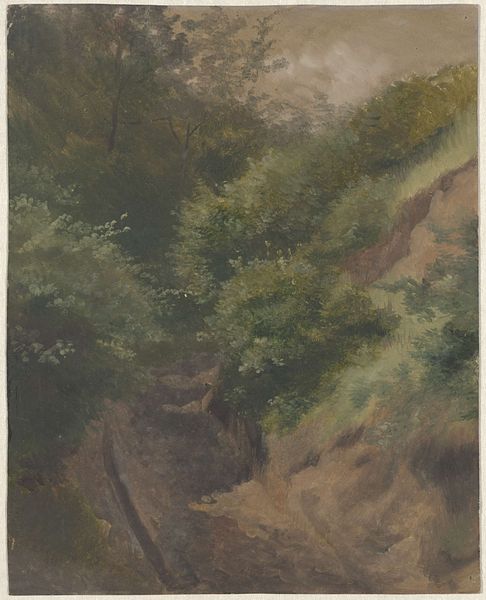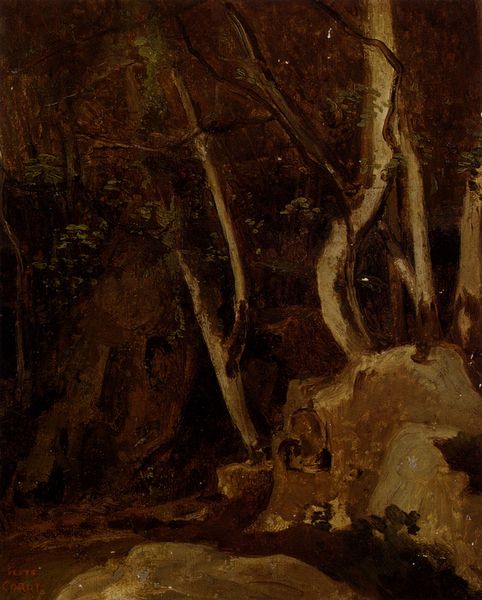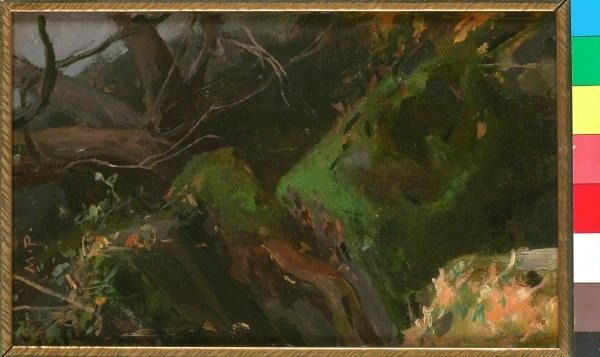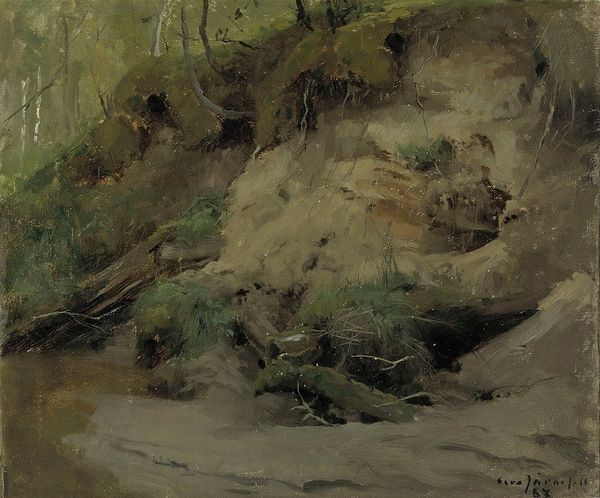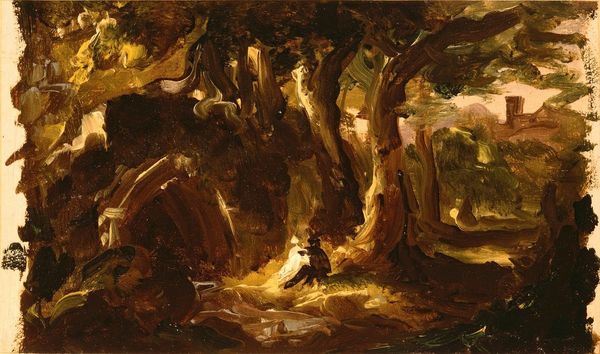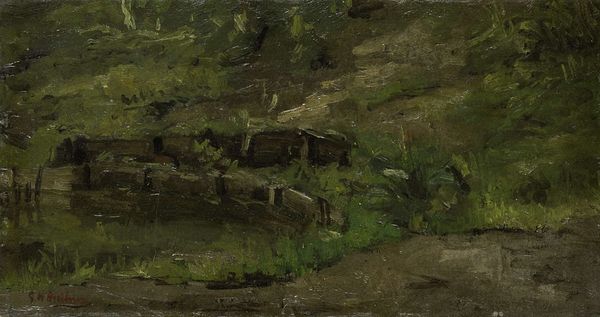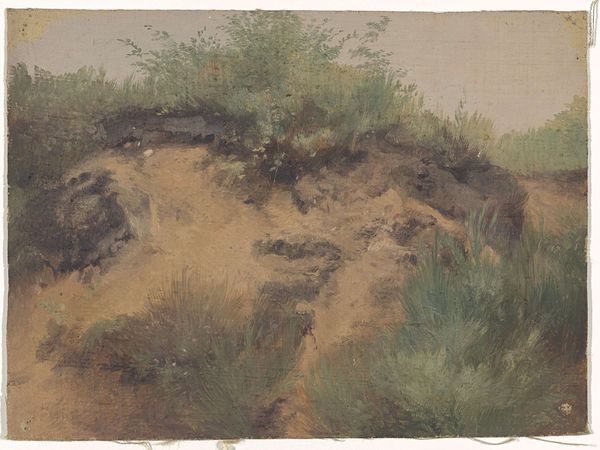
painting, oil-paint
#
painting
#
impressionism
#
oil-paint
#
landscape
#
impressionist landscape
#
nature
#
plant
#
nature
#
watercolor
#
realism
Dimensions: 9 x 14 3/4 in. (22.9 x 37.5 cm)
Copyright: Public Domain
Curator: Ah, yes. Here we have William Stanley Haseltine's "Study from Nature," likely painted sometime between 1835 and 1900. It's a smaller oil on canvas, housed right here at the Met. Editor: The word that jumps to mind immediately is "overgrown." It feels like looking into a secretive, tangled corner of the woods, doesn’t it? Almost a miniature world entirely self-contained. Curator: Precisely. What interests me is the way Haseltine challenges the conventional landscape. He brings the foreground—usually a pathway *into* a scene—right up against the viewer. He is inviting us to explore nature as it confronts us rather than some idealized picturesque vista. Editor: Absolutely. There’s nothing conventionally "beautiful" about it. The color palette is almost entirely greens and browns, not the showiest of combinations. And it isn't trying to inspire awe, right? I imagine people at the time saw this work displayed within a museum or gallery setting; it challenges its presumed conventions. Curator: Exactly. Consider how landscape paintings were displayed then: often functioning almost as aspirational real estate brochures. Whereas Haseltine seems intent on capturing something far more immediate, less mediated, if you will. It's as though he wanted to hold up a mirror to the messiness of life, literally! Editor: And in a way, by doing so, doesn't he get closer to truth than artifice? Isn't it interesting that through all the tangle we do perceive little glimmers of light. Perhaps even reflections in water near the centre of the composition. It speaks to nature's persistent and transformative vitality and, really, that nature is always there whether society accepts it or not. Curator: A thoughtful insight. I hadn't quite seen that shimmering sense of renewal previously. Haseltine truly gives us much to consider within this small work. Editor: Well, for me it now stands out for me because it whispers rather than shouts; an invitation to pause and discover poetry even in the wildest corners.
Comments
No comments
Be the first to comment and join the conversation on the ultimate creative platform.
